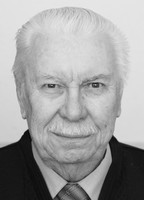Encouraging students' self-training for success in GTO complex tests
Фотографии:
ˑ:
Teoriya i praktika fizicheskoy kultury №7 2017, pp.17-19
PhD, Professor V.E. Mogilev1
PhD, Associate Professor L.V. Byankina1
Dr.Hab., Professor I.M. Vorotilkina2
1Far Eastern State Academy of Physical Culture, Khabarovsk
2Amur State University named after Sholom Aleichem, Birobidzhan
Health-centred physical culture building is one of the key purposes of any education institution attainable mostly by traditional physical culture methods dominated by common physical conditioning tools. The study considers classified physical fitness tools in application to students of the Khabarovsk and Birobijan universities and their progress in the physical fitness initiatives with a special emphasis on the self-reliant physical conditioning activity. We used the study data and analysis of the Russian Physical Culture and Sports “Ready for Labour and Defence” (GTO) Complex test standards to explore the students’ progress versus these standards in the academic education process. The study data and analyses showed that the share of students fit for the GTO Gold Badge qualification tests is small enough varying from 3-15% in the both gender groups. The students’ fitness for the GTO Silver Badge qualification tests was found somewhat higher (4- 27% for men and 3-10% for women). And the students’ fitness for the GTO Bronze Badge qualification tests was estimated at 63% for men and 45% for women. Having analysed the gender-specific physical fitness rates versus the valid GTO test standards, we found the running disciplines being the most challenging for the Far Eastern young people; whilst the strength- and speed-strength GTO Badge qualification tests were surmountable for most of the students for the reason that the relevant abilities are better developed by the self-training practices.
Keywords: self-training practices, physical fitness levels, Russian Physical Culture and Sports “Ready for Labour and Defence” (GTO) Complex.
References
- Vorotilkina I.M. Razvitie samostoyatelnosti detey i uchashcheysya molodezhi v dvigatelnoy deyatelnosti [Development of self-training habits in children and students]. Psikhologiya obucheniya, 2011, no. 8, pp. 105-113.
- Mogilev V.E., Chekulaev N.N., Byankina L.V. Kompleksnaya otsenka fizicheskogo razvitiya i fizicheskoy podgotovlennosti shkolnikov otdelnykh regionov Dalnego Vostoka Rossii: metod. rekom. [Comprehensive assessment of physical development and physical fitness of schoolchildren in selected regions of the Russian Far East. Guidance]. Khabarovsk: FESAPC publ., 2013, 36 p.
- Normy GTO.ru: sayt. [GTO.ru morms: website.]. Available at: http://www.gto-normy.ru (06.02.2017).
- Ilyinich V.I., Evseev Y.I. Fizicheskaya kultura. Primernaya programma distsipliny federalnogo komponenta [Physical Education. Sample program of discipline of federal component]. Moscow, 2000, 35 p.




 Журнал "THEORY AND PRACTICE
Журнал "THEORY AND PRACTICE